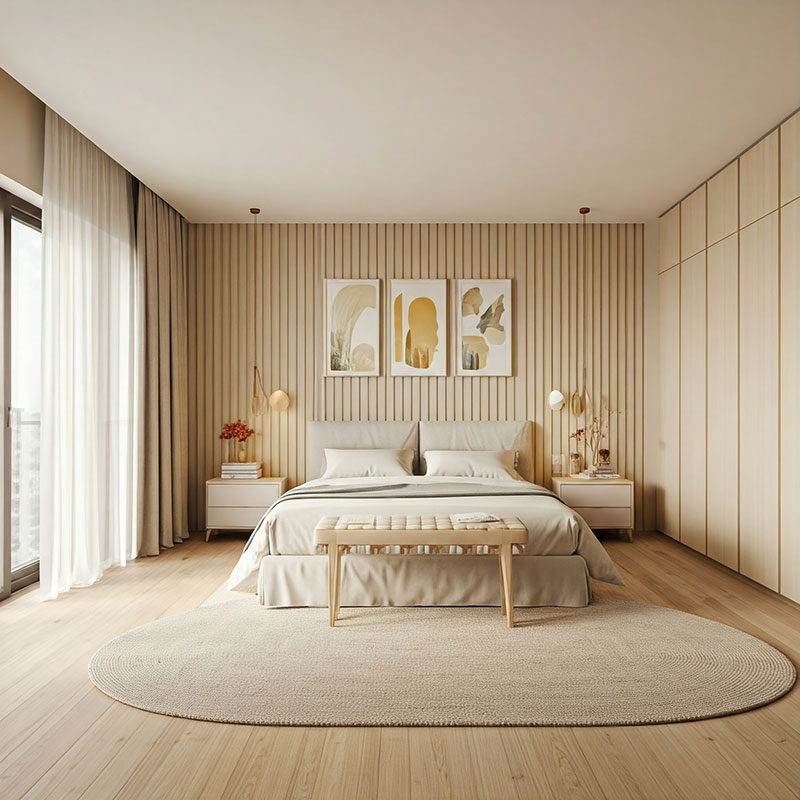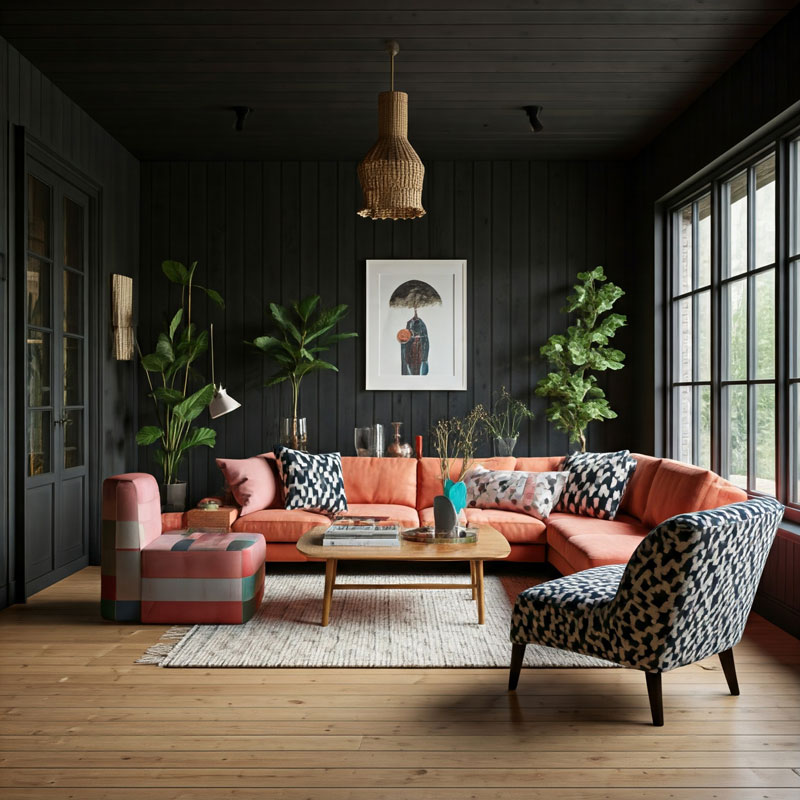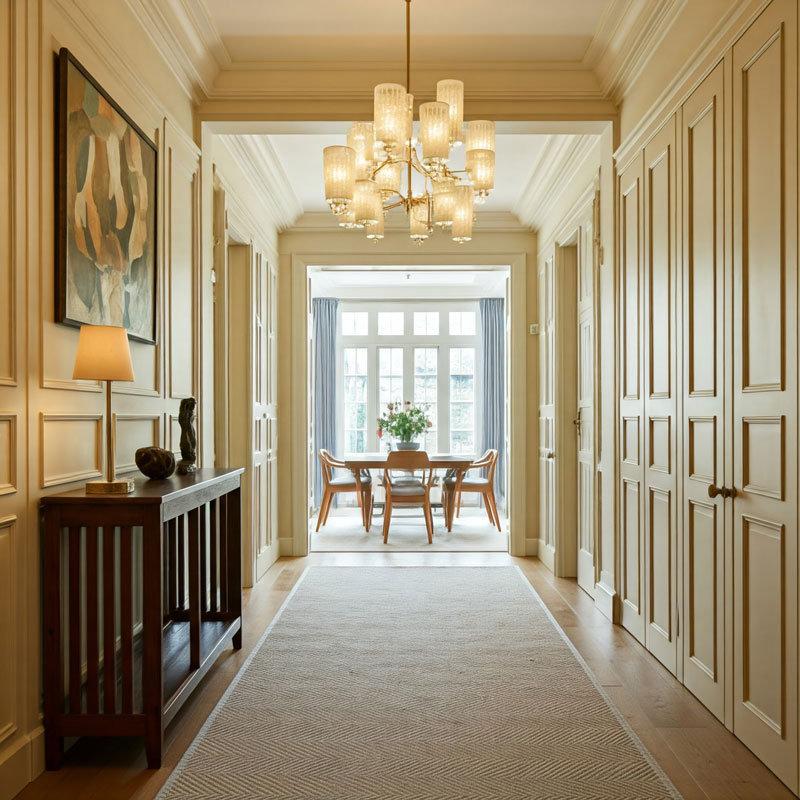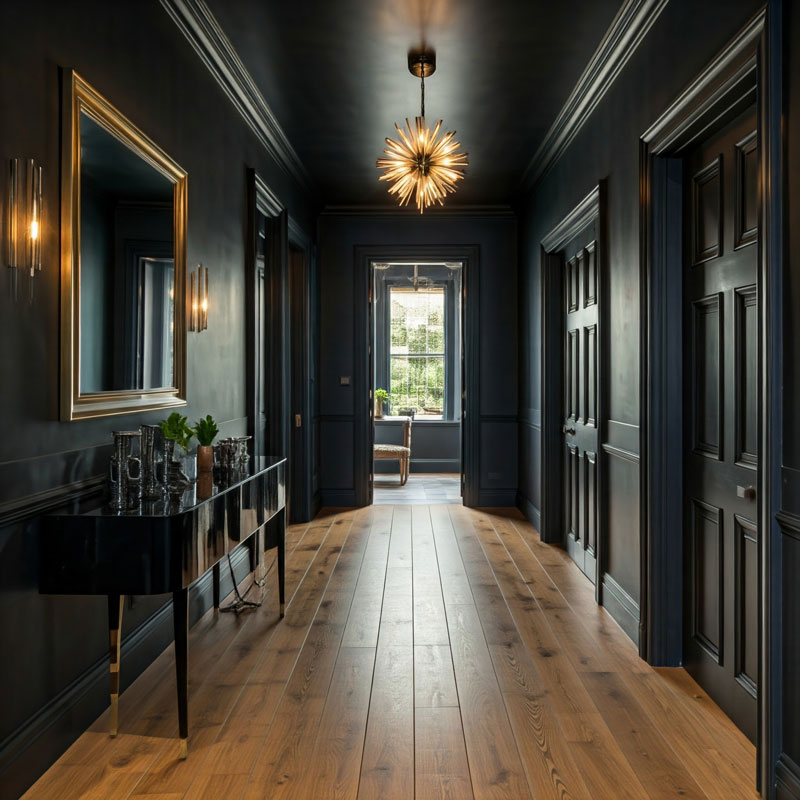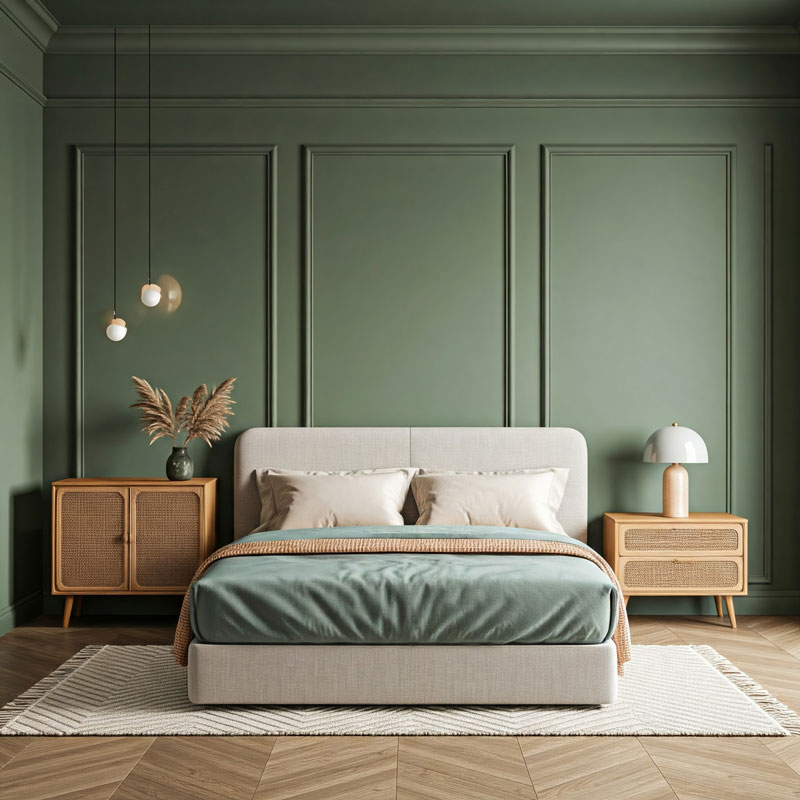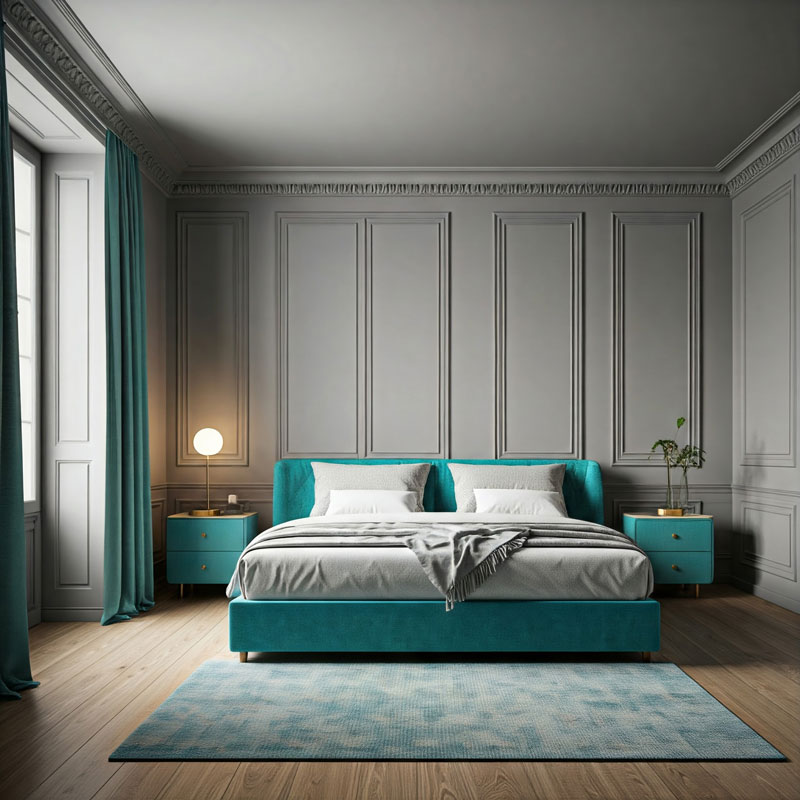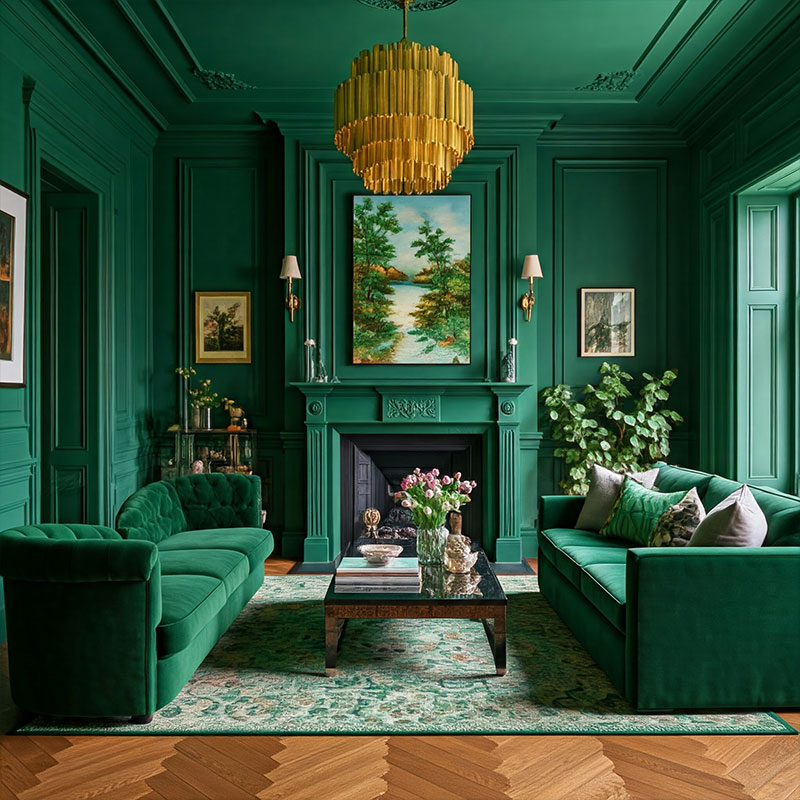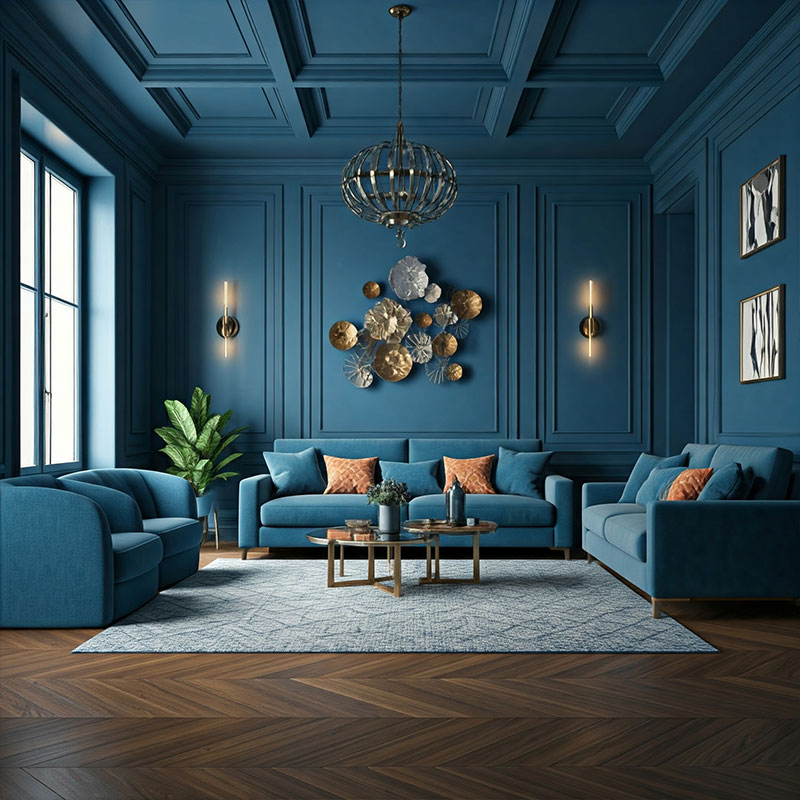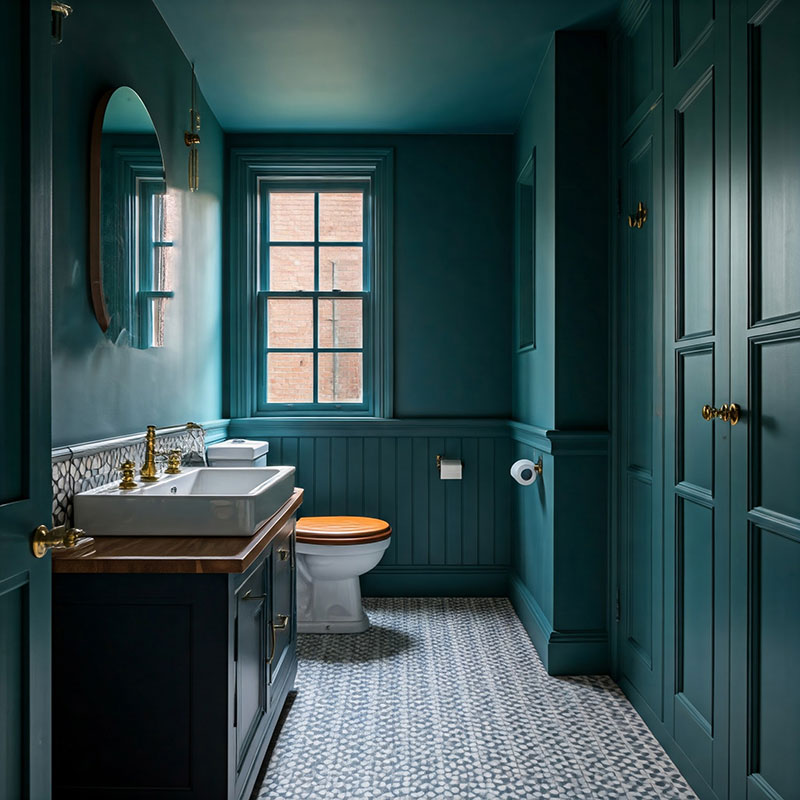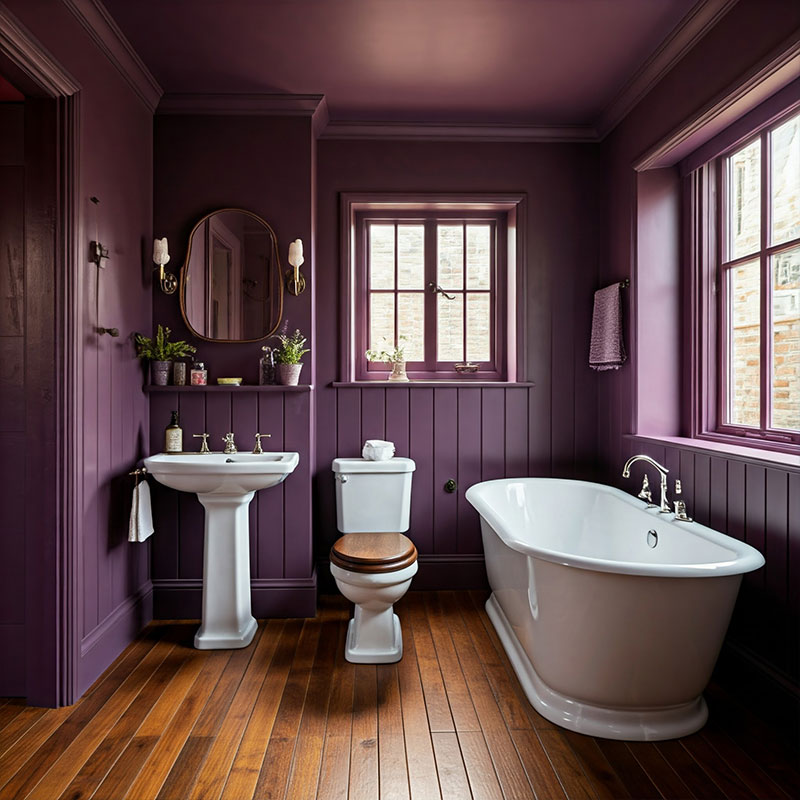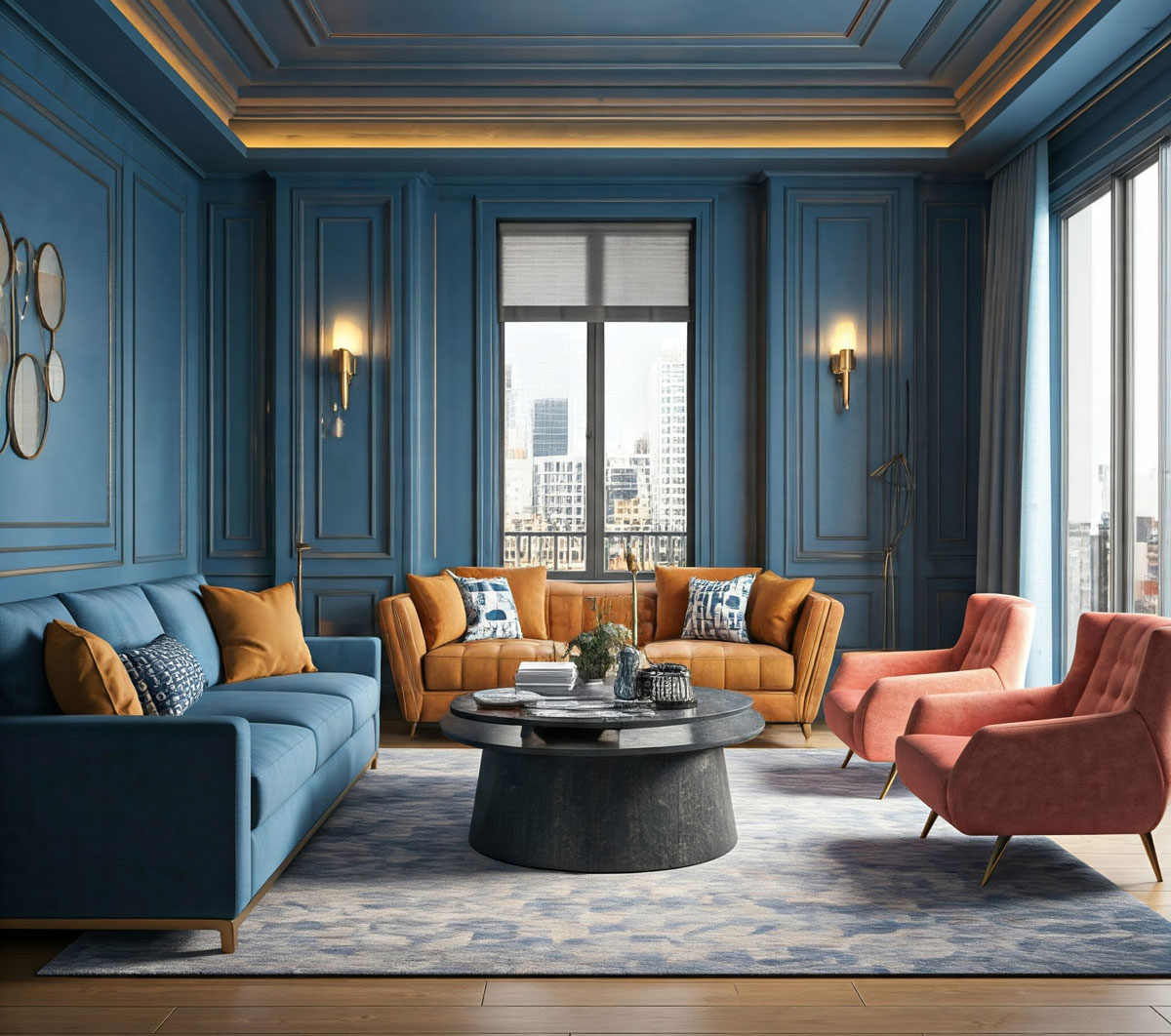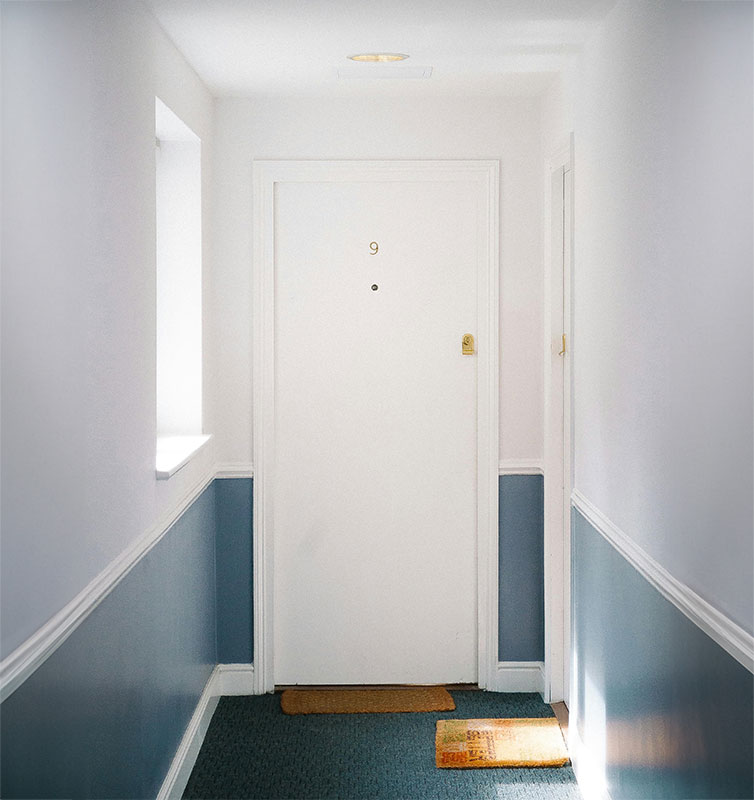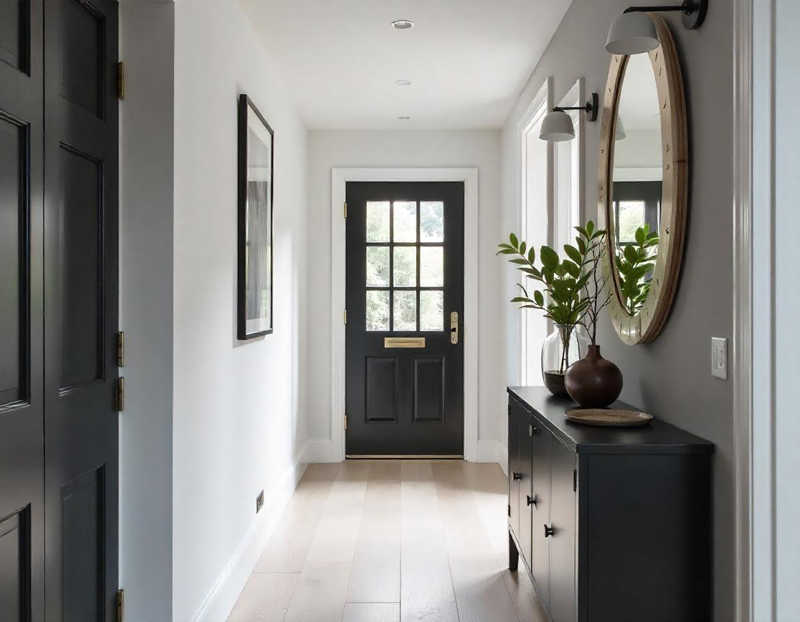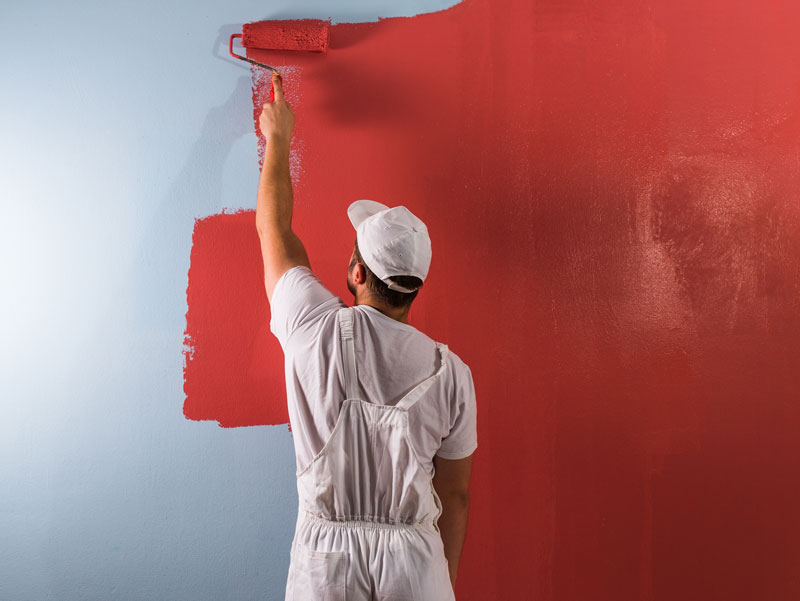What Is Colour Drenching? A Bold Interior Trend Explained
If you’ve been flipping through design magazines or scrolling Pinterest lately, you’ve probably come across the term “colour drenching.” But what exactly is it, and why is it taking the interior design world by storm?
In this post, we’ll break down the ins and outs of this bold decorating trend. From tips for colour drenching to what finishes work best, we’ll cover everything you need to know to create a stunning colour-drenched room. Let’s dive in!
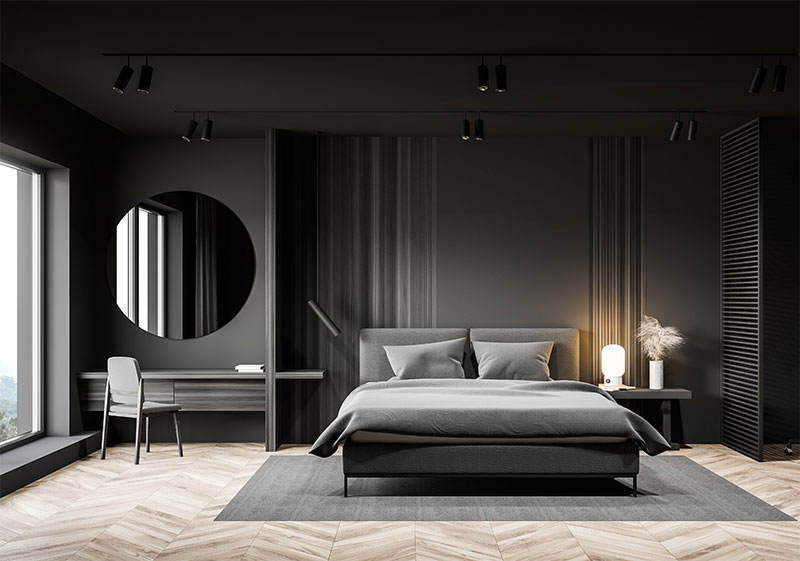
What Is Colour Drenching?
Colour drenching is all about committing to one hue and using it across walls, ceilings, woodwork, and even furniture. It’s a way to immerse a space in a single colour, creating a cohesive and dramatic look.
The idea is simple: instead of contrasting colours or a feature wall, you saturate a room with one shade. It’s a technique that can make a space feel curated, luxurious, and surprisingly calming.
Red Colour Drenched Bedroom
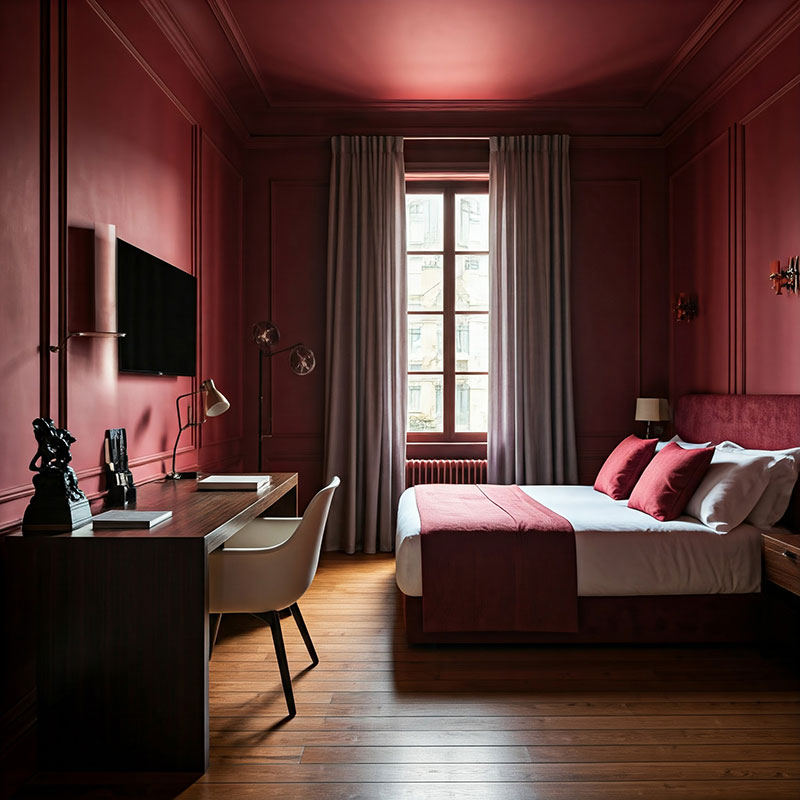
Red Colour Drenched Hallway
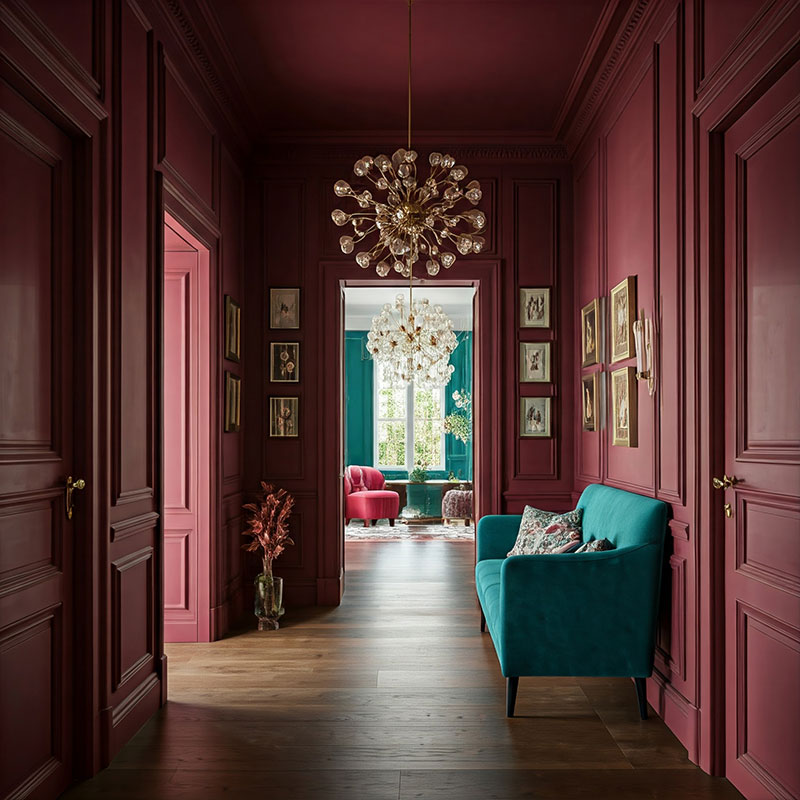
Why Is Colour Drenching So Popular?
The trend has roots in minimalist design but takes it a step further. Colour drenching offers:
- Impact: A colour-drenched room immediately grabs attention.
- Versatility: It works in bedrooms, living rooms, bathrooms, and hallways.
- Mood-Setting: Colours have the power to influence emotions, and drenching amplifies this effect.
Whether you’re after a serene retreat or a bold statement, colour drenching delivers.
Does Colour Drenching Make a Room Look Bigger?
Yes! Done right, colour drenching can make a room appear larger. By using one shade throughout, you blur the boundaries between walls, ceilings, and trims. This creates an illusion of depth and space.
Lighter colours, like soft creams or pale blues, can expand a room visually. Darker tones, while moodier, also add depth but work best in larger spaces.
Light Coloured Drenched Bedroom
Dark Coloured Drenched Lounge
Tips for Colour Drenching
1. Pick the Right Shade
Choose a colour that fits the mood of your space. For a cosy vibe, go for rich tones like deep green or navy. Want a bright, airy feel? Opt for lighter shades like blush pink or warm beige.
2. Don’t Forget the Ceiling
To achieve true colour drenching, the ceiling must be included. Painting it the same colour as the walls creates that immersive effect.
3. Layer Textures
To avoid a flat look, mix up textures. Pair matte walls with glossy woodwork, or add a velvet sofa for a touch of luxury.
4. Mind the Lighting
Lighting can make or break a colour-drenched room. More on this in the next section.
5. Test Before You Commit
Always test your colour in different lighting conditions. What looks great in daylight might feel too intense under artificial light.
What Finish to Use When Colour Drenching?
The finish you choose can drastically affect the outcome:
- Matte or Flat Finish: Perfect for walls. It absorbs light, giving a soft and sophisticated look.
- Satin or Eggshell: Works well on woodwork and trims. It adds a slight sheen without being too shiny.
- Glossy Finish: Use sparingly for accents. A high-gloss finish can highlight architectural details.
Mixing finishes within the same colour can add depth and interest to the space.
Colour Drenching and Lighting
Lighting is crucial when it comes to colour drenching. Here’s how to get it right:
Natural Light
Rooms with lots of natural light can handle darker hues like charcoal or emerald. The sunlight will balance the intensity of the colour, making it feel rich rather than overpowering.
Artificial Light
In spaces with limited natural light, lighter tones work best. Use warm-toned bulbs to enhance the colour’s warmth and depth.
Accent Lighting
Don’t underestimate the power of accent lighting. Wall sconces, table lamps, and LED strips can highlight architectural features, adding dimension to your colour-drenched interiors.
Colour Drenching in Different Rooms
Colour Drenching Hallway
Hallways are perfect for experimenting with this trend. A bold shade like terracotta or deep blue can turn a typically overlooked area into a statement.
Colour Drenching Bedroom
For a serene, cocoon-like feel, try soft greys or muted greens. Extend the colour to wardrobes or built-in furniture for a seamless look.
Colour Drenching Living Room
Create a cosy, inviting living room with warm tones like mustard or rust. Pair with textured throws and cushions for added depth.
Colour Drenching Bathroom
Bathrooms can shine with colour drenching. Moody tones like teal or black create a spa-like atmosphere, while lighter shades can make the space feel fresh and clean.
Pros and Cons of Colour Drenching
Pros
Bold and Impactful: It’s a surefire way to make a design statement.
Cohesive Look: Creates a sense of unity in the space.
Customisable: Works with any colour to suit your style.
Cons
Time-Intensive: Covering walls, ceilings, and trims requires effort.
Colour Overload: If not balanced with textures or accents, it can feel overwhelming.
Lighting Dependence: The effect relies heavily on good lighting.
Inspiration for Colour Drenching Interiors
Need ideas? Here are some stunning examples to consider:
- Colour Drenched Bedroom: Soft lavender walls, ceiling, and trims paired with crisp white bedding.
- Colour Drenched Living Room: Deep forest green throughout, with gold accents for a luxe finish.
- Colour Drenching Hallway: Warm ochre tone enveloping the space, complemented by vintage black-and-white floor tiles.
- Colour Drenching Bathroom: Navy walls and ceiling, paired with brass fixtures for a sophisticated vibe.
Final Thoughts
Colour drenching is more than a trend; it’s a design philosophy that challenges the way we think about colour in interiors. Whether you’re transforming a bedroom, living room, or hallway, this technique offers endless creative possibilities.
Remember, it’s all about balance. With the right shade, finish, and lighting, you can create a space that feels cohesive, stylish, and uniquely yours.
Ready to give colour drenching a try? Grab a brush and start experimenting with this transformative trend!
FOR COLOUR DRENCHING PAINTING PLEASE CALL OUR FRIENDLY TEAM ON 020 8949 2553

